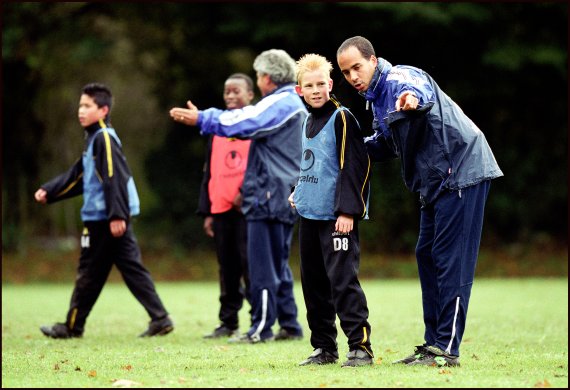©Sports Knowledge Centre for Sport Netherlands
Super was expecting her research to show how good sport is for young people from disadvantaged families who have learning or behavioural problems. But she now says there are two sides to the coin: ‘These young people often have low self-esteem and little self-confidence. They easily feel rejected. Sport can reinforce these feelings.’
Super asked young people and sport coaches to fill in questionnaires. The results show that vulnerable adolescents who play sport more than three times a week are more cooperative, perform better at school and feel healthier. They are also less likely to demonstrate problematic behaviour and are better at dealing with setbacks than young people who don’t play sports. Super: ‘However, we can’t say whether this was caused by playing sports because it is also possible that young people who already had these skills are more likely to choose sport.’
She conducted in-depth interviews in which the adolescents talked about the role sport had in their lives. Super: ‘Many see the sport club as a safe haven where they can forget their worries for a while. Others mainly see it as a place where they can learn things and achieve goals.’ This equilibrium between safety and challenge is very fragile for vulnerable adolescents, says Super. ‘Sometimes you can give someone more of a challenge to motivate them, but if the challenge is too big and they are not up to it, that can be very discouraging. Vulnerable adolescents are particularly susceptible to this.’
Young players must not get the impression that the sport club is a therapy centre. ‘Playing sports should be fun first and foremost.
Sabina Super- PhD candidate in the Health and Society chair group
According to Super, coaches have a huge influence on how young people experience sport. ‘But the problem is that these coaches are often volunteers with no teacher training.’ She says it is important for coaches to make sure that the young people feel supported and experience success. On the other hand, the young players must not get the impression that the sport club is a therapy centre. ‘Playing sports should be fun first and foremost.’
Super has incorporated her research results in a booklet with practical tips for policymakers, youth support organizations, sports coaches and care professionals.

